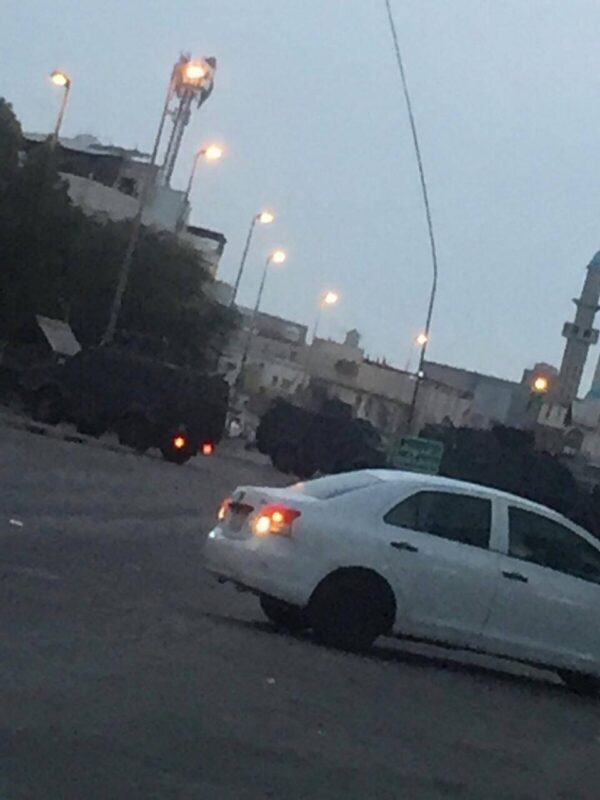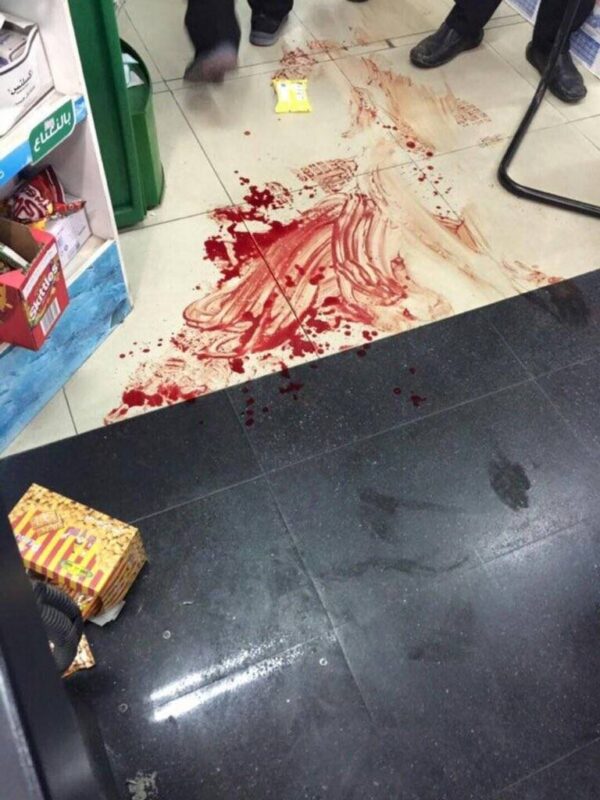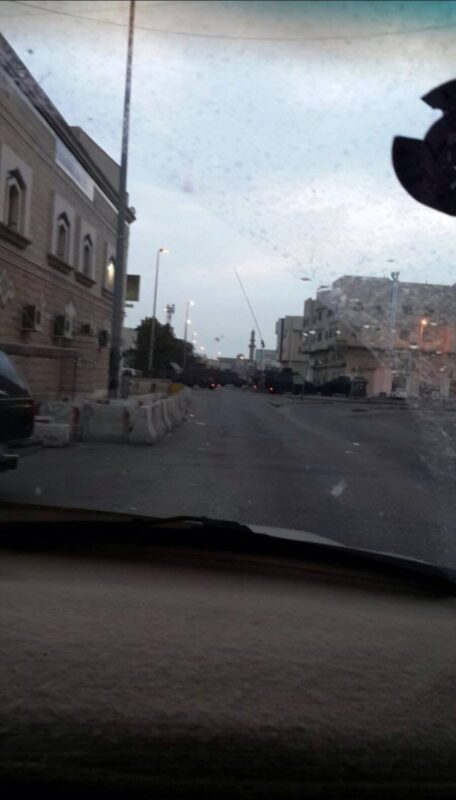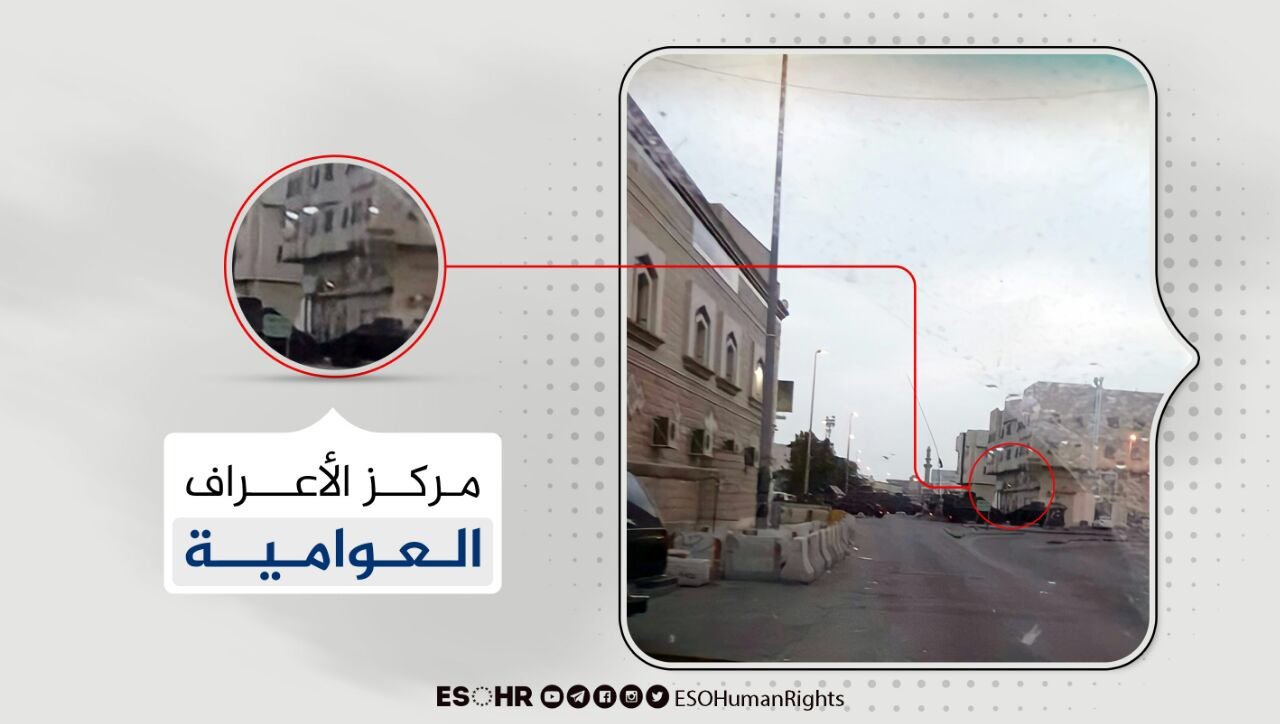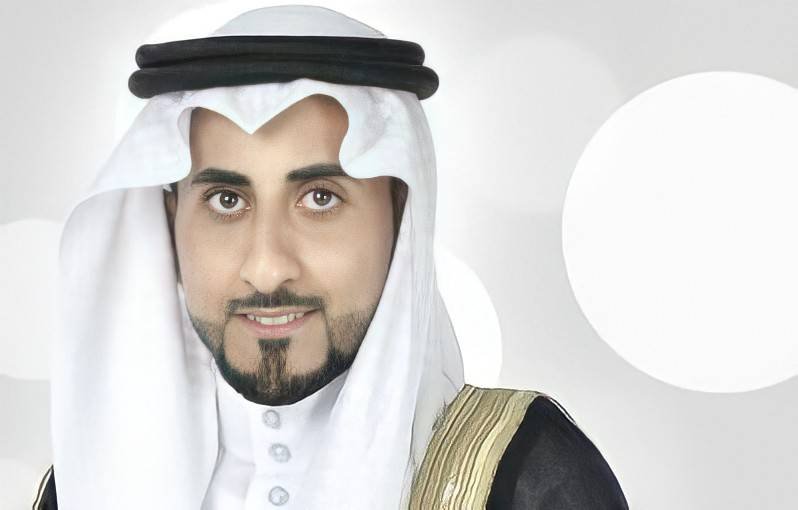
The Court of Appeal of the Specialized Criminal Court, which is not independent, ratified a verdict to execute young Muslim Al-Mohsen (1987), after an unfair trial that lacked all the conditions of a fair trial.
On November 23, 2015, Saudi forces brutally arrested Al-Mohsen from Al-A'raf food center in Awamiya city, east of Saudi arabia.
Saudi Arabia controls media institutions completely, which would place them under the dictates of repressive institutions such as the Ministry of Interior and the Presidency of State Security, and media institutions are frequently used to issue judgments before any investigation or trial.
On 24 November 2015, state media reported that the "killer" of Dhaifallah Al-Qurashi had been arrested and reported that Al-Mohsen tried to resist security forces by shooting during the arrest, which required that he be dealt with according to regulations, and he was shot in the foot and arrested. No security personnel were harmed.
The report, which was based on the statement of the media spokesman for the Eastern Region police, Colonel Ziad Al-Ruqaiti, did not indicate that the raid was at the site of Al-Mohsen's work, nor did it say anything about the fate of the alleged weapon that he used to shot at security forces, nor was it subsequently presented in court as incriminating evidence.
Several people from the same city confirmed to the organization, those who know Al-Mohsen, that he is a peaceful person, has no history of violence, and has never carried or possessed weapons. The organization was also able to communicate with an eyewitness who was at the center during the operation, who conveyed a different story from what was reported by the Saudi official authorities. He said that about 15 members suddenly entered the center and closed it quickly, then they headed directly to Al-Mohsen at his work location, where he worked as an accountant. They beat him with batons and the butts of their machine guns while he was in his chair. They also forced shoppers to lie down on their bellies and beat an Asian worker because he did not compliance their orders. He also stated that an officer threatened to kill him if he stood up. In the meantime, members of the security forces took video center cameras. The witness confirmed that the officers dragged the unconscious young man out of his work place from the back gate and then heard several gunshots.
The organization also obtained photos showing Saudi military armored vehicles besieging the building where the center is located and a picture of Al-Mohsen's blood as a result of beating him at the moment of his arrest.
Saudi Arabia has a black record of fabricating false stories that convict victims in order to justify the violence used against them during arrestation, and wants to portray them as terrorists in preparation for harsh verdicts against them. For example, on March 22, 2012, Saudi Arabia arrested protest activist Mohammed Saleh Al-Zanadi in a bloody manner that nearly took his life. He was later charged by the Public Prosecution with shooting the arrestation squad and they demanded his execution, but it was later dropped due to conflicting versions of the officers.
In July 2012, Saudi Arabia arrested justice activist Sheik Nimr Al-Nimr by deliberately ramming his car and after his arrest, officers drugged him with a needle and shot him in the thigh. The peaceful opposition leader, Sheik Nimr Al-Nimr, who was executed in a massacre of 47 people, including four children, has faced a fabricated charge in the Specialized Criminal Court of firing on security forces before his arrest. Saudi Arabia also alleged in several incidents that protesters who were killed by its forces' fire had fired at security forces before, but it failed to provide any evidence.
While in hospital, Muslim Al-Mohsen was interrogated to treat his left thigh as a result of bullets fired by an officer, the investigator intentionally pressured the place where he was injured in order to hurt him. After being transferred from the hospital, he was held in solitary confinement, prevented from communicating with the outside world for months, and deprived of his right to seek the assistance of a lawyer, in flagrant violation of domestic and international laws. He was also subjected to various forms of physical and psychological torture. Among the methods practiced against him was forcing him to stand for long hours, beating him repeatedly, preventing him from sleeping, cursing and threatening to bring his wife to prison.
Although media spokesman for the Eastern Region police, Colonel Ziad Al-Ruqaiti, and official newspapers accused Al-Mohsen of killing Dhafallah Al-Qurashi immediately after his arrest, the public prosecution provided another alleged story that he was riding a motorcycle and that his companion shot at the victim's car.
On February 12, 2019, the Public Prosecution issued Al-Mohsen with a combination of broad accusations without providing any material evidence and used the confessions that the victim said were extracted under duress and torture. Among the charges brought against him that convicted him after a mock trial that lacked all the requirements of a fair trial were participating in demonstrations, chanting political slogans, throwing Molotov at a police car, communicating with wanted individuals, driving the motorcycle that targeted Al-Qurashi (the companion is the alleged killer), participating in the funerals of victims killed by Saudi forces, and obstructing the security forces from performing their duties by placing timber and stones in the road.
Through dozens of cases monitored by the European-Saudi Organization for Human Rights, it found that Saudi Arabia denied victims their inherent right to the presumption of innocence through mock trials and smear campaigns waged by the official authorities and the official press before the start of the trials.
Following up with Al-Muslim's case from the moment of his arrest until the start of his trial, the organization sensed the confusion of the official authorities in his alleged role in the killing of the young man Dhaifallah Al-Qurashi, in addition to the fabrication of the arrestation squad's version of the victim's resistance during his arrest.
The organization also found that the judges did not respond to Al-Mohsen by bringing video footage of the Food Material Center's cameras that refute the arrestation squad's story, nor did they demand to bring in video footage of the investigation sessions proving torture and coercion. This reveals that the judges are not independent and under full control of the Head of State Security, and that the trials are merely a tool for suppressing protesters, opinion and opposition.
The organization also asserts that Saudi Arabia relied entirely on confessions extracted under torture in its condemnation of Mohsen and did not provide any substantial material evidence, in flagrant violation of the Convention against Torture and other cruel treatment. The organization also believes that the sentence against Al-Mohsen is revenge, especially since the Ta'izar punishment is a repressive tool used by Saudi Arabia to justify its unjust sentences, which are not based on the most serious crimes. Under international law, it is limited to premeditated murder, which is not included in this case.
ESOHR stresses that the Saudi government sentenced the young Muslim Al-Mohsen from the moment of his arrestation through the media, and denied him his most basic rights, through torture, denying him self-defense, and sentencing him before conducting a transparent and fair investigation. And the organization believes that the imminent danger to his life with the confirmation of the Ta'izari sentence at the judge's discretion is a devotion of Saudi Arabia's false claims regarding death penalty reforms and demonstrates its determination to continue using this unfair and arbitrary punishment.

